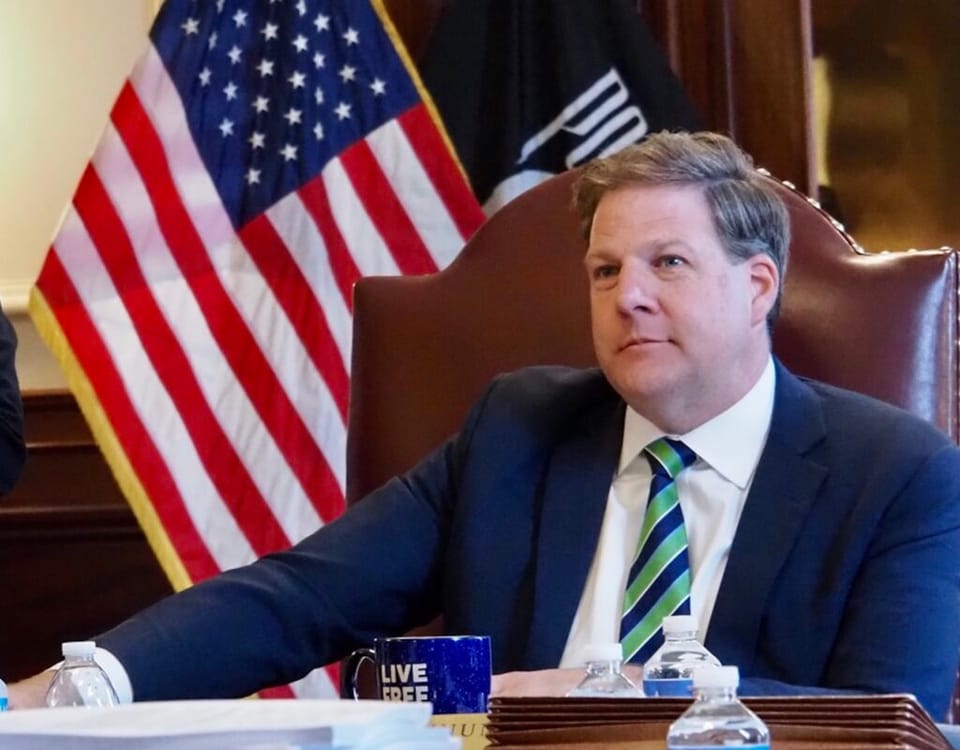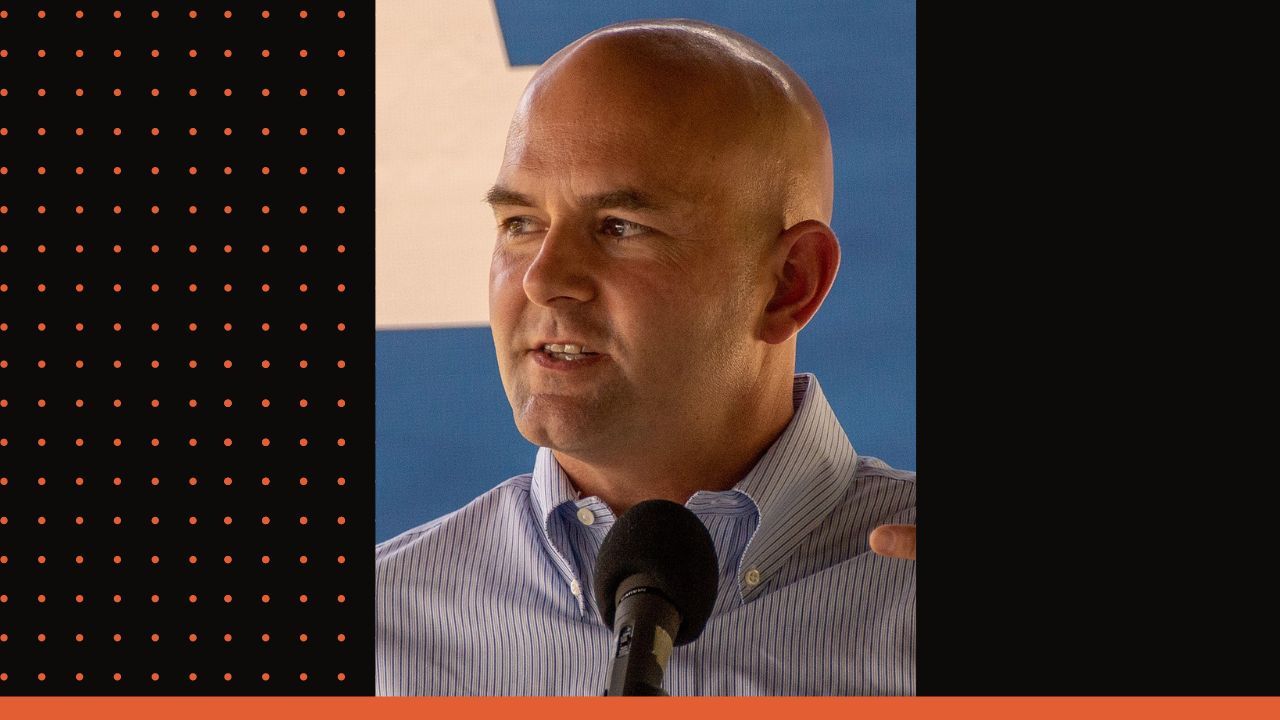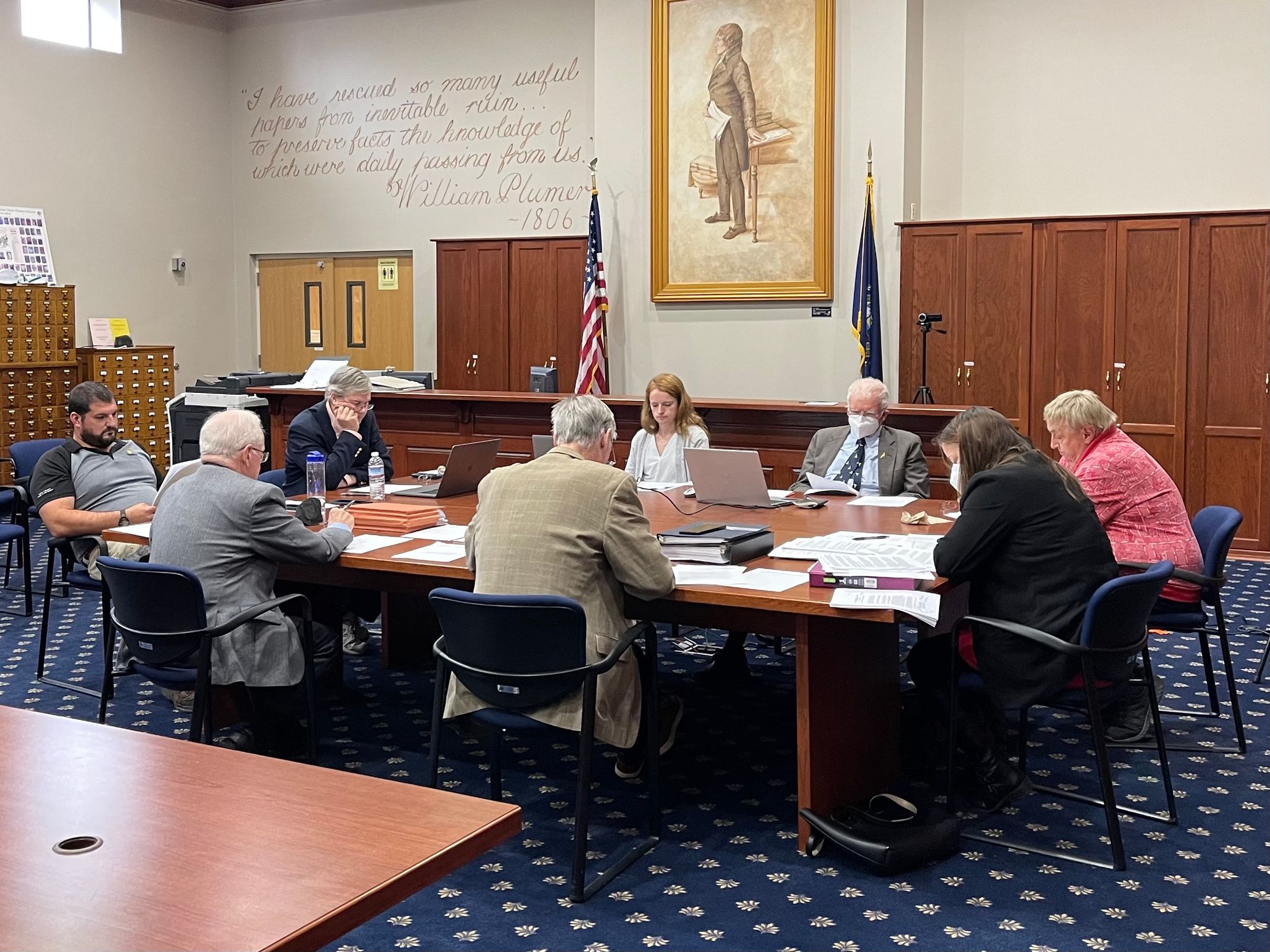Democrats keep losing to Sununu. How might they win a NH governor's race?

For New Hampshire residents, some of Tuesday’s election results may have seemed familiar.
The state’s three congressional Democrats fighting for reelection held on to their seats. The Democrat facing Republican Gov. Chris Sununu lost handily.
It’s a dynamic that has repeated itself since Sununu first ran for the corner office in 2016. And the gaps have grown wider in recent years: While Sununu eked out a win against Democrat Colin Van Ostern by 2.2 percent in 2016, he beat Sen. Tom Sherman by 15 percent on Tuesday.
The results underscore a perennial dilemma for New Hampshire Democrats: In a state willing to elect Democrats to the presidency and Congress, why do so many Democratic candidates fail to make a dent in the governor’s support? And what is the political reward for those who try?
"Why would a reasonably ambitious state legislator run against Sununu?" said Dante Scala, professor of political science at the University of New Hampshire. "What's the calculus? Are you thinking, 'I’ll run a second time and maybe Sununu won’t run again?'"
When it comes to Sununu’s enduring popularity, every observer has a theory – or several.
Dems recognize 'a skilled politician'
At around 8:30 on election night, a small crowd lingered in To Share, the Manchester brewery where Sherman had hosted a results party. Sherman had delivered a speech and left; the governor’s race had been called within an hour of polls closing.
Mingling near the bar was Steve Marchand, the former Portsmouth Democratic mayor who himself has unsuccessfully run for governor three times. The mood was upbeat; no one in the room had really expected a victory.

Marchand complimented Sherman, who he said had closed the margin of victory significantly from the governor’s race in 2020. But he also noted a reality that many in his party don’t readily admit: Chris Sununu is talented.
“Regardless of how one feels about the policies of Gov. Sununu, we must acknowledge that he is a skilled politician,” Marchand said. “He is pretty good at getting elected.”
Though sometimes argumentative on a debate stage, Sununu has presented an upbeat persona in the public eye, selling accomplishments and talking his way through controversies that might have tripped up other politicians.
He found a pandemic-era spotlight
Those political skills helped keep the Republican governor in the spotlight through the first months of COVID-19, even as Democrats tried to criticize him for ending lockdown orders early and cutting the Legislature out of spending decisions.
They helped Sununu benefit from a slew of state COVID-19 relief programs funded by more than a billion dollars in federal aid, even as Democratic congressional representatives tried to highlight their role in passing that spending. Sununu opposed the federal spending packages when first introduced but later said he spent the money so as not to waste the opportunity.

But Sununu’s talents also predate COVID-19, Scala says. Since taking office, the governor has used New Hampshire’s budget – and the state’s flush cash reserves – to his advantage.
He’s overseen two cuts to the business enterprise and business profits taxes, and has signed into law a gradual elimination of the interest and dividends tax. And at the same time, the state’s general fund has thrived, buoyed in part by strong revenues from state businesses and in part by external causes like the 2017 federal tax cut bill and the federal COVID-19 stimulus packages.
“He’s been able to cut taxes and spend money on lots of different things,” Scala said. “And I think when a governor can do that, Democrat or Republican, you’re kind of sitting in a sweet spot.”
He's building on his family's legacy
The governor has had a boost from his family’s political legacy. As the son of former Gov. John H. Sununu and brother of former Sen. John E. Sununu, he entered the governor’s race in 2016 with widespread name recognition.
Beyond grabbing voters, that legacy has also helped him build an efficient fundraising apparatus, argued Lucas Meyer, co-founder of the progressive group 603 Forward and former president of the New Hampshire Young Democrats.
“There is an inherently very privileged political network that Gov. Sununu has always been able to tap into, which means for something like fundraising he has to put in minimal effort to raise the money he needs to run a bare-bones campaign,” Meyer said.

And there’s one more advantage for Sununu: New Hampshire likes to reward an incumbent. Governors are rarely tossed out.
“You could have said the same thing about Lynch a decade ago,” Scala said, referring to Gov. John Lynch, a Democrat who won four elections for governor with ease. “I mean, look at the Republicans who ran against Lynch. They weren’t a ‘who’s who.’”
For a Democratic challenger, the totality of those factors makes taking on Sununu an unenviable task.
Dems find pitfalls of going negative
On Thursday, two days after conceding to Sununu, Sherman was in his Manchester office, writing his supporters thank-you notes.
When he decided to run against Sununu, Sherman, a practicing gastroenterologist and Democratic state senator from Rye, knew the hurdles that would come, and the failed efforts of three Democrats before him. But he thought he had a strong strategy: Talk to voters and avoid negative campaigning, but critique Sununu for his policy decisions.
“Being a doctor, I believe we should be honest, and also be held accountable for what we have actually done,” he said. “I’ve known doctors who are just incredibly great with their patients, and yet, they’re not good doctors.”
That strategy has been tried before: In 2020, then Senate Majority Leader Dan Feltes waged a gubernatorial campaign centered around accusations of Sununu’s failures, as well as an attempt to tie the moderate governor to President Donald Trump.
But the approach didn’t work. Despite launching a barrage of attacks, Feltes lost decisively, 31.7 percentage points behind Sununu in the worst showing by a Democrat yet. Some in the party say the rout was in part a result of the COVID-19 outbreak and voters’ desire to stick with Sununu amid uncertainty.

Still, Sherman says he was conscious of the risks of going too negative, and he argues he avoided them.
“I don’t think you can beat anybody just by being negative,” he said. “I don’t just say, ‘This guy is terrible and blah, blah, blah’; I say, ‘Here’s where we could be.’”
How about an 'unconventional resume and style'?
To other Democrats, the results of the past few years demonstrate that unseating Sununu will not happen with negative campaigning. Rather, they say the change needs to come from a candidate captivating enough on their own to compete with the governor for attention.
“I do think that the most effective way to take on Gov. Sununu is with a non-Concord-centric candidate who can present a somewhat unconventional resume and style as a candidate,” Marchand said. “And he has not been faced with that challenge in a general election over four terms.”
Marchand clarified that that candidate will not be him. “Zero interest,” he said of the idea, holding up a “0” with his fingers. “Zero.”
Yet when it comes to finding that dynamic candidate, Democrats have been held back by structural barriers, Scala says.

Because many in the state are far less aware of who sits in the state senate or Executive Council than who is governor, there are few obvious launch pads for challengers that voters will know. Unlike other states, New Hampshire does not have a lieutenant governor, and it does not directly elect its secretary of state or attorney general, three common stepping stones to higher office.
The structure makes it difficult for either party to develop a strong “bench” for new candidates, particularly when the most promising ones would likely face an uphill battle, Scala says. Three out of the last four Democratic candidates for governor have been state senators (Molly Kelly, Feltes, and Sherman); Van Ostern was an executive councilor.
Those barriers are not guaranteed: U.S. Sens. Maggie Hassan and Jeanne Shaheen both ascended to the governor’s office from the state Senate. But when facing Sununu and his broad popularity, Democrats say their best shot at the corner office won’t come until the current governor stops running.
Sununu has not said whether he would seek a fifth term.
Losing candidates slink away
Meanwhile, those who have challenged Sununu and lost have each withdrawn from political life. That’s prevented Democrats from building the name recognition that could come if the same nominee ran twice, Scala noted.
Reflecting from the Manchester office, Sherman said he’s satisfied with the campaign he ran. His one regret: not talking to more voters. And he hasn’t ruled out a return to politics.
“I’m not sure I would do anything differently,” he said. “Frankly, I think that we conducted a professional, respectable campaign that not only showed where the state is headed, where it has been and where it is headed under the current leadership, (but also) where we could be under different leadership.”
While Sherman’s party wrapped by 9, Sununu kept his going at Pinz, a Portsmouth bowling alley and arcade, until midnight. Supporters of the governor threw axes at targets and grabbed complimentary beers, even as results poured in showing the rest of the Republican Party losing races in Congress and the New Hampshire House.

Stepping outside to talk, the governor argued his victory was simply a referendum of his record, and a desire for voters to see the programs he enacted continue.
But as he enters his fourth term – tied only with Lynch in New Hampshire political history – Sununu said that the persona matters as much as the policies.
“Look, I give John Lynch a lot of credit,” Sununu said Tuesday night from his victory party. “I tried to learn from John Lynch, his affable approach, his friendliness, his openness.”
Sununu’s advice to Democrats: Build their own political capital, and stop attacking his. Not that they asked.
“Trying to tell people I’m an extremist or I’m this or I’m that – that’s all a false narrative,” he argued. “And people know that because they know me.”
This story was produced by the editorially independent New Hampshire Bulletin, which is part of States Newsroom. Contact Editor Dana Wormald for questions: info@newhampshirebulletin.com. (The headline and subheads on this page were added by Granite Memo.)
